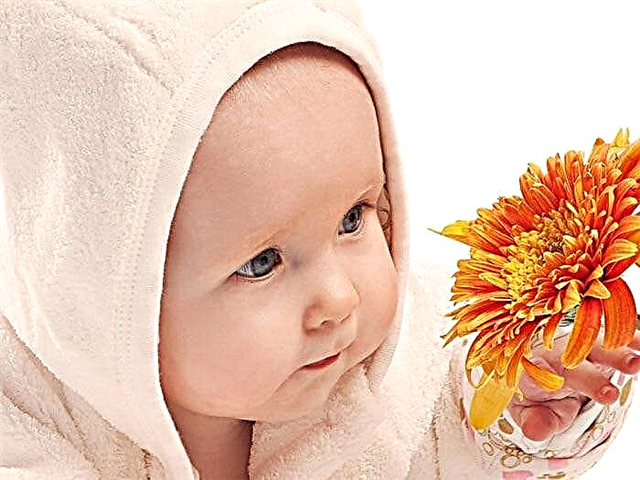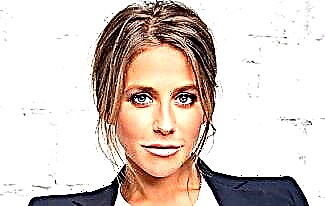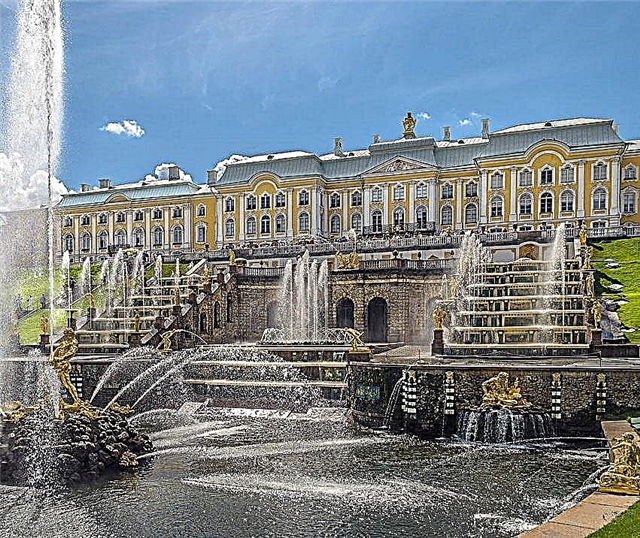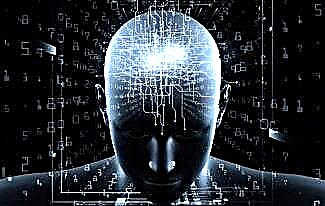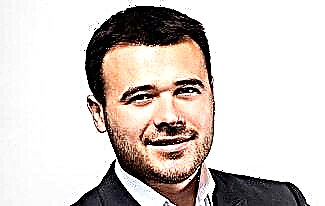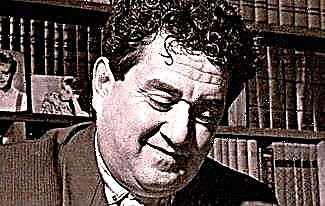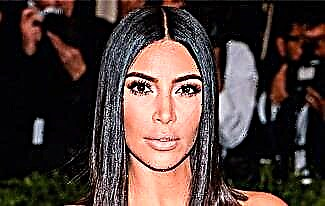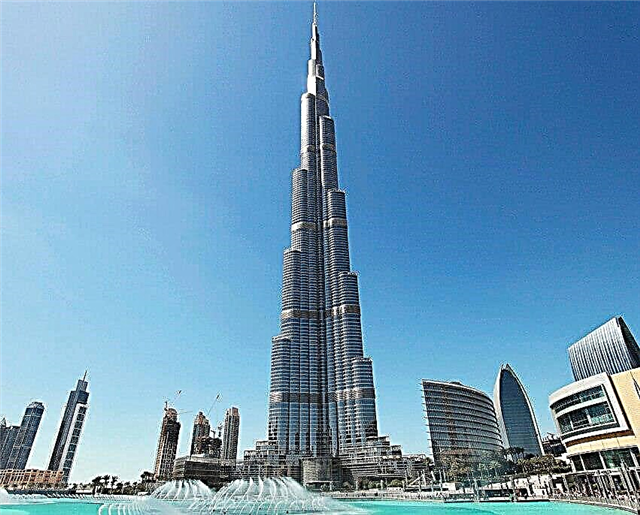Mikhail Borisovich Khodorkovsky - Russian businessman, public and political figure, publicist. was a co-owner and head of the Yukos oil company. Arrested by the Russian authorities on charges of embezzlement and tax evasion on October 25, 2003. At the time of his arrest, he was one of the richest people in the world, his fortune was estimated at 15 billion dollars.
In 2005, he was found guilty of fraud and other crimes by a Russian court. The YUKOS company has been filed for bankruptcy. In 2010-2011 he was sentenced under new circumstances; taking into account subsequent appeals, the total time limit set by the court was 10 years and 10 months.

The biography of Mikhail Khodorkovsky contains many interesting facts from his personal life and even more from public.
So, before you is a short biography of Khodorkovsky.
Biography of Mikhail Khodorkovsky
Mikhail Khodorkovsky was born on June 26, 1963 in Moscow. He grew up and was brought up in a simple working class family.
His father, Boris Moiseevich, and his mother, Marina Filippovna, worked as chemical engineers at the Kalibr plant, which produced precision measuring equipment.
Childhood and youth
Until the age of 8, Mikhail huddled with his parents in a communal apartment, after which the Khodorkovsky family acquired their own housing.

From an early age, the future entrepreneur was distinguished by curiosity and good mental abilities.
Mikhail especially liked chemistry, as a result of which he often conducted various experiments. Seeing the son's interest in the exact sciences, the father and mother decided to send him to a specialized school with in-depth study of chemistry and mathematics.
After receiving a school certificate, Khodorkovsky became a student at the Moscow Institute of Chemical Technology. D.I. Mendeleev.
At the university, Mikhail received high marks in all disciplines. An interesting fact is that during this period of his biography he had to earn money as a carpenter in a housing cooperative in order to have the necessary means of subsistence.
In 1986, Khodorkovsky graduated with honors from the institute, becoming a certified process engineer.
Soon, Mikhail and his comrades found the Center for Scientific and Technical Creativity of Youth. Thanks to this project, he manages to put together a fairly large capital.
In parallel with this, Khodorkovsky studied at the Institute of National Economy. Plekhanov. It was there that he met Alexei Golubovich, whose relatives held high positions in the State Bank of the USSR.
Bank "Menatep"
Thanks to his initial business project and his acquaintance with Golubovich, Khodorkovsky was able to enter the big business market.
In 1989, the guy created the commercial bank Menatep, becoming the chairman of its board. This bank was one of the first in the USSR to receive a state license.

Three years later, Mikhail Khodorkovsky showed interest in the oil business. Through the efforts of familiar officials, he became president of the Fund for Promotion of Investments in the Fuel and Energy Complex with the rights of deputy minister of fuel and energy.
To work in the civil service, the businessman was forced to leave the position of the head of the bank, but in fact, all the reins of government still remained in his hands.
Menatep began to cooperate with large enterprises operating in the industrial, oil and food sectors.
YUKOS
In 1995, Khodorkovsky struck a big deal, swapping 10% of Menatep's shares for 45% of Yukos, the state-owned oil refinery, the first in terms of oil reserves.
Later, the businessman took possession of another 35% of the securities, as a result of which he already controlled 90% of the shares of YUKOS.
It should be noted that at that time the oil refining company was in a deplorable state. It took Khodorkovsky 6 long years to get Yukos out of the crisis.
As a result, the company managed to become one of the world leaders in the energy market, with a capital of over $ 40 million. In 2001, Mikhail Khodorkovsky, together with foreign partners, opened the Openrussia Foundation charitable organization.
The Yukos case
In the fall of 2003, the police arrested billionaire Khodorkovsky at Novosibirsk airport. The detainee was accused of stealing public funds and tax evasion.
A search was promptly conducted in the YUKOS office, and all shares and accounts of the company were under arrest.
The Russian court ruled that Khodorkovsky was the initiator of the creation of a criminal group that was engaged in the illegal appropriation of shares in various companies.

As a result, Yukos could no longer export oil and soon found itself in a critical condition again. All the money from the company's assets was transferred to pay off the debt to the state.
In 2005, Mikhail Borisovich was sentenced to 8 years in a general regime colony.
At the end of 2010, during the second criminal case, the court found Khodorkovsky and his partner Lebedev guilty of oil embezzlement, sentencing them to 14 years in prison based on cumulative sentences. Later, the term of imprisonment was reduced.

Many political and public figures supported Mikhail Khodorkovsky, including Boris Akunin, Yuri Luzhkov, Boris Nemtsov, Lyudmila Alekseeva and many others. They insisted that in the YUKOS case the law was violated in the most "malicious and insolent manner."
An interesting fact is that the oligarch was also defended by American politicians. They came out with harsh criticism of the Russian legal proceedings.
While serving his sentence in prison, Mikhail Khodorkovsky went on a hunger strike 4 times in protest. This was one of the most difficult periods in his biography.
It is worth noting that in the colony he was repeatedly attacked by both law enforcement agencies and inmates.
Once, Khodorkovsky was attacked with a knife by his cellmate, Alexander Kuchma, who slashed his face. Later, Kuchma admits that unknown people pushed him to such actions, who literally forced him to attack the oil magnate.
When Mikhail was still in prison, he began to engage in writing. In the mid-2000s, his books were published: "The Crisis of Liberalism", "Left Turn", "Introduction to the Future. Peace in 2020 ”.
Over time, Khodorkovsky published a number of works, where the most popular was "Prison People". In it, the author spoke in detail about prison life.
In December 2013, Russian President Vladimir Putin signed a pardon order for Mikhail Khodorkovsky.

Once free, the oligarch flew to Germany. There, he publicly announced that he no longer intends to participate in politics and do business. He also added that, for his part, he will make every effort to free Russian political prisoners.
Nevertheless, a few years later, Khodorkovsky announced his intention to compete for the presidency in order to change the state of affairs in the state for the better.
Personal life
Over the years of his biography, Khodorkovsky married twice.
With his first wife, Elena Dobrovolskaya, he met in his student years. Soon the couple had a boy, Pavel.

According to Mikhail, this marriage was not successful. Nevertheless, the couple parted peacefully and today continue to be on good terms.
The second time Khodorkovsky married an employee of the Bank Menatep - Inna Valentinovna. Young people got married in 1991, at the height of the collapse of the USSR.
In this union, the couple had a girl, Anastasia, and two twins, Ilya and Gleb.
According to his mother, Khodorkovsky is an atheist. At the same time, many sources indicate that he believed in God when he was in prison.
Mikhail Khodorkovsky today
In 2018, the United Democrats project was launched to provide appropriate assistance to self-nominated candidates in the 2019 regional elections.
The project was financed with the direct support of Khodorkovsky.
Mikhail Borisovich is also the founder of the Dossier organization, which investigates corruption schemes by the state leadership.
Khodorkovsky has his own YouTube channel, as well as accounts on popular social networks.
Communicating with viewers, Mikhail often criticizes Vladimir Putin and the actions of the government. According to him, the country will not be able to develop safely as long as the power is in the hands of the current politicians.
Photo by Mikhail Khodorkovsky






